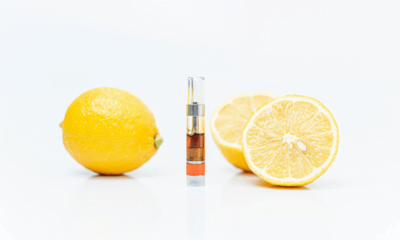A new study on anxiety shows patients using CBD respond better to low doses over a long period of time.
Anxiety is on the rise in the UK, especially after Covid-19 lockdowns and infections. In the UK, the Office for National Statistics (ONS) reported that anxiety rates rose to their highest-ever level in the year ending March 2021. Anxiety had a 0.26 per cent increase while happiness levels decreased by 0.17 per cent.
A new study focused on depression and anxiety found that those taking CBD reported that smaller doses over longer periods of time reported fewer symptoms. At follow-up, they reported significant reductions in both anxiety and depression along with better sleep, and less pain compared with those who did not use CBD.

When it comes to taking CBD, the researchers say less is more and that there is a big misconception that doses need to be between 400 to 600 mg to make a difference.
Anxiety study
Speaking with Cannabis Health , Dr Nicholas Schlienz, co-author of the paper and research director for the Realm of Caring said: “We wanted to focus on anxiety and depression because the literature is quite mixed when it comes to the therapeutic effects of cannabis, so we wanted to find some clarity with this study.”
He added: “People would complete our survey at baseline then follow up at three-month intervals. This would measure their anxiety, depression and overall quality of life alongside sleep, pain and use of cannabinoids.”
The study discovered at baseline that there were significant reductions in depression. However, it did not find any reductions in anxiety until follow-up.
Dr Schlienz explained: “It was quite intriguing. The main author of our paper, Dr Aaron Martin thought this could be due to a number of reasons. It could be that it’s a cross-sectional study which means using connected products or because people have been using products for a while and developed a tolerance.
“Another thing was that the doses were all over the place for CBD. CBD was the predominant cannabinoid in the study but around 20 per cent used THC. The average dose was a little over 60ml which is quite a small dose when we compare that to some people in our registry that have other conditions.

Anxiety follow-up
When it came to the follow-up after three months, the researchers examined results from those who weren’t using CBD at baseline but had started at follow up. They also looked at those who did show significant reductions in both anxiety and depression compared to baseline.
They found those who reported no cannabis use at baseline and continued to report no use for the entire study showed no differences in anxiety or depression.
The study found that individuals responded better with low doses of CBD over a longer period of time. So how can those using cannabinoids interpret the data when it comes to their own usage?
Dr Schlienz said: “We tell people that when it comes to care and care specialists, start low and go slow. When it comes to the study, 60ml is quite small in comparison to how much for other conditions such as cancer or epilepsy. It speaks to where more research is needed. We need more research that clarifies the range of doses that are therapeutic.”
He highlighted that while there are leading brands that undergo rigorous testing to ensure the dosage is correct, there are many other companies that may not. This could mean that products have more or less than what is advertised. Further research or regulation could mean that there is a balance across the industry.
Future research
Going forward, the research team has plans for more studies examining different doses for different conditions including anxiety along with what cannabinoids people are using.
“The one thing that remains intriguing for me, and my colleagues, is the list of conditions keeps growing such as epilepsy or chronic pain. We want to see who is using what dose, if it is CBD dominant or a more THC dominant product or if it’s more balanced. What’s nice about this study is that it gives us a look at what people are using in their natural environments compared to a clinical trial which has stricter environments and tightly controlled dosing,” he said.
“We have a paper that we are currently working on that looks at people’s subjective experiences of being on cannabinoids where we give them the opportunity to type their experiences in an open-ended field. What did they experience? Was it positive? Negative? Or did they stop taking cannabinoids? We also ask our folk if this was their first option for treatment.”

 News6 months ago
News6 months ago
 Science5 months ago
Science5 months ago
 Industry6 months ago
Industry6 months ago
 News6 months ago
News6 months ago
 News5 months ago
News5 months ago
 Health5 months ago
Health5 months ago
 News5 months ago
News5 months ago
 Health3 months ago
Health3 months ago














